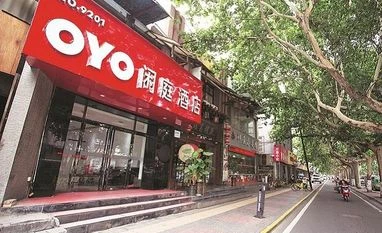When you are the sixth largest and fastest growing hospitality chain in the world with an inventory of more than 515,000 rooms spread across 500 cities globally, working in silos is not an option. This is what Ritesh Agarwal, Group CEO and Founder, OYO Hotels and Homes, told his team before the firm made an entry into China in November 2017. Incidentally, China is now OYO’s biggest market outside India.
According to sources close to Agarwal, the brief was clear: Unlike other major hospitality chains where each property is a separate unit and needs minimal coordination with other properties, OYO had to be totally connected and tech-enabled to ensure that everything was managed centrally.
At OYO, that job is done by its stack of proprietary technologies, including OYO OS, Property Management System, OYO Optimus and a host of others, all of which are built in-house. These power more than 20 applications and OYO is also backed by 1,000 engineers spread across multiple locations.
The company recently announced an investment of Rs 1,400 crore into its India and South Asia business. Most of that capital will go towards expanding its engineering teams, research and development of new technologies as well as acquiring relevant companies in the hospitality space.
“Technology continues to be a key growth driver and competitive advantage for OYO. We use innovative technology solutions end-to-end to facilitate the standardisation of services, amenities and in-room experience,” says Anil Goel, Global Chief Technology Officer, OYO Hotels and Homes.
OYO’s entire tech stack is Java J2EE-based and the company is building systems so that it can handle scale. It uses machine learning for dynamic pricing while artificial intelligence and Natural Language Processing (the analysis and synthesis of natural language and speech) are helping to provide quality customer service. Its pricing and tariff plans are based on algorithms that not only ensure the best rates for guests, but also drive higher yields and occupancy across its 18,000 properties.
“We will ramp up our technology prowess by expanding our technology team to 2020 engineers by the end of the year 2020,” says Goel.
How it works
All OYO properties run on the OYO OS, which is its own operating system. Its Krypton app is now able to onboard 64,000 new rooms every month as against 35,000 plus rooms a month last year. This app also allows one auditor to manage the audit of over 300 rooms while improving the guest experience.
Then there is the Orbis App which uses artificial intelligence to help the company contract a building into an OYO hotel in just three meetings with the property owner. The app provides a checklist of things to look for in a property which determine the decision for a tie-up.
The renovation and transformation of properties into OYO hotels is done on the back of its Optimus app, which gives teams cost estimates and budgets, in addition to tracking the pace at which the work is progressing. Thanks to this app, OYO has been able to reduce the time taken to transform a property from one month to 14 days.
“We use a highly sophisticated set of monitoring and analytics tools, including Zabbix, Prometheus, Grafana and ELK stack. There are thousands of different metrics that we monitor continuously to detect any potential issues and fix them proactively. Machine learning and AI are the enablers in this journey of data gathering and analytics,” Goel says.
Customer service is another area where OYO has made massive tech improvements. With the help of AI and machine learning, it looks at multiple metrics to do with customer behaviour such as location, weather and so on, to learn more about customer preferences. While the person behind the reception ensures that the guest is served well, the data analytics teams figure out the uniform template that helps them set service standards across all properties.
What’s more, OYO’s operation centres that run 24X7 help solve infrastructure glitches in real time. On the cards now are next-generation infra monitoring tools which will detect any anomaly quickly and also have troubleshooting capabilities.
Handling hotels overseas
OYO’s technology teams are located across the globe with the central operations being run from India. While the technology remains the same at the core, with the help of data analytics and AI, the firm localises it according to the country in terms of language, currency, time zone and so on. “For instance, in a new geography, we integrate our technology to the local payment instruments. While cash is the most preferred mode of payment in India and digital payments are catching up, in China, our customers use WeChat app or Alipay,” says Goel.
The way tech works
What Optimus can do
- Property audits
- Generation of questionnaire
- Floor layout creation
- Interior Design Recommendations
- Branding and photography
What OYO OS can do
- Front desk & reservation
- Seamless check-in/check-out
- Guest profiling and preferences
- Digital Payments
- Fraud detection and control
Unlock 30+ premium stories daily hand-picked by our editors, across devices on browser and app.
Pick your 5 favourite companies, get a daily email with all news updates on them.
Full access to our intuitive epaper - clip, save, share articles from any device; newspaper archives from 2006.
Preferential invites to Business Standard events.
Curated newsletters on markets, personal finance, policy & politics, start-ups, technology, and more.
)